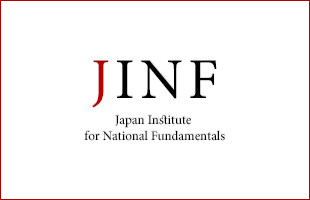The informal summit between Indian PM Narendra Modi and Chinese President Xi Jinping at Wuhan in China on April 27-28, took many by surprise, not only in India and China, but in many other parts of the world. This is indeed a welcome augury after the sabre-rattling between the two countries last year when China started constructing a road in the Doklam region of Bhutan(claimed by China) and India intervened on the side of Bhutan.
As it was an informal summit, there were no “takeaways” as such from the meeting, but it did reflect an easing of tensions between the two Asian behemoths.
However, it is unlikely to lead to any major positive shift in Sino-Indian ties. There has been no movement on the major issues of concern for both the countries. China has been consistently blocking India’s bid to enter forums like the Nuclear Suppliers Group(NSG) and the listing of Pakistan based-terrorist Masood Azhar at the United Nations(UN)
WHY CHINA MAY HAVE AGREED TO WUHAN?
Beijing has its own reasons for the meeting.
First, the rapid pace of events on the Korean peninsula mean that Beijing has lost its traditional role in the region and there is no guarantee that the US would pull out its forces from South Korea—which means that it could be a double whammy for Beijing.
Second, China is also in the midst of a trade war with the US with President Trump breathing down hard on China. It runs a huge trade surplus with India and therefore has a lot to gain from improved ties with India. Last year, though the total trade between India and China reached a historic high of $84.44 billion, the trade deficit has also ballooned to US$51.75 billion.
Third, this is part of Beijing’s attempts to reach out to countries like Japan and India-countries which can afford not to toe Beijing’s line. As opposed to that, recent reports which indicate that China has installed anti-ship cruise missiles and surface-to-air missiles in the Spratly islands means that it has not had a real change of heart.
INDIA’S CONCERNS
Next year, 2019, is an election year in India and PM Modi knows all too well that the economy will need a booster shot in order to improve his chances of re-election. The Make-In-India programme has not had the kind of success that was originally planned for. Hence, injection of Chinese capital in areas like infrastructure will be good for the health of the Indian economy. New Delhi would also like to cushion some of the impact of China’s already close ties with Pakistan. There are also reports that China and India may not be averse to cooperating in Afghanistan.
WHAT NEXT FOR NOW?
There are still lot of problems between the two sides. India has opted to stay out of the Belt and Road Initiative(BRI) or the OBOR and is unlikely to change its stand on the same, especially as it involves sovereignty concerns. On the other hand, China is unlikely to give up its claims on the Indian state of Arunachal Pradesh and stop its dalliance with Pakistan.
China has also been rapidly moving into India’s neighbourhood, whether it be in Sri Lanka, Pakistan or the Maldives and New Delhi has not been able to come up with a coherent strategy on how to respond to this. Though India had signed on to the Quad along with the US, Japan and Australia, it seems to be caught in a bind (along with Japan) on how to take it forward.
PM Modi is scheduled to participate in the SCO (Shanghai Cooperation Organisation) Summit in the Chinese city of Qingdao next month. The Wuhan Summit therefore afforded both the parties an opportunity to gauge each other. While it is good news that both the sides are back on the negotiating table, New Delhi should avoid lowering its guard and understand that the temporary olive branch by Beijing to India, could be part of a bigger game-plan. As they say, one swallow does not make a summer.
Dr. Rupakjyoti Borah is with the Institute of South Asian Studies at the National University of Singapore. He was earlier an assistant professor of international relations at Pandit Deendayal Petroleum University in India. He has also been a visiting fellow at the University of Cambridge, the Japan Institute of International Affairs (Tokyo), and the Australian National University. His latest book is The Elephant and the Samurai: Why Japan Can Trust India? The views expressed are personal. He can be reached at rupakj@gmail.com or via Twitter @rupakj.


